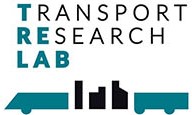Individual uncertainty and the political acceptability of road pricing policies
This paper presents a model regarding the role and relevance of individual specific uncertainty in explaining the acceptability of road pricing policies (RPP). The main assumptions of the model are: 1) decisions concerning the adoption of RPP are taken by politicians who operate under a reelection constraint and have perfect foresight on the aggregate voting intentions of their constituency; and 2) the agents of the economy are perfectly rational and informed, but uncertain about their personal evaluation of the public good after an RPP is adopted. These assumptions are discussed and their potential impacts are assessed. Main findings indicate that without money transfers and with no uncertainty, RPP will not be accepted, thus giving rise to an evident trade-off between economic efficiency and political acceptability; and, when assuming a high degree of individual specific uncertainty, the optimal level of RPP may, under given conditions concerning the number of voters and people’s preferences, become politically acceptable.


